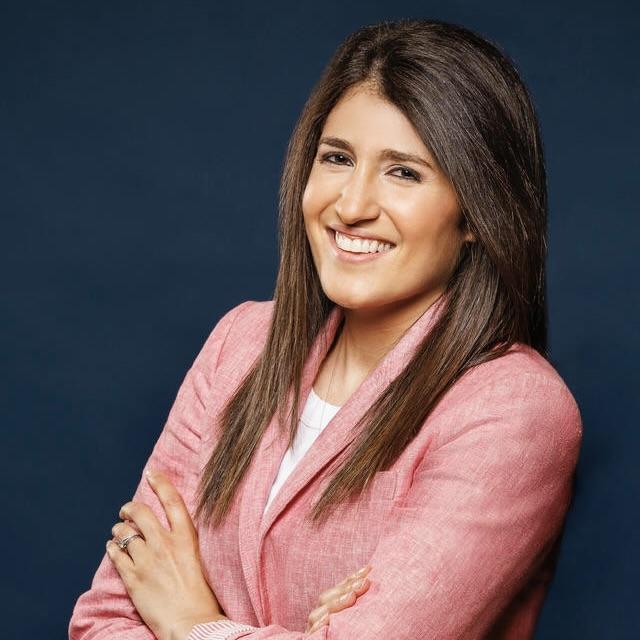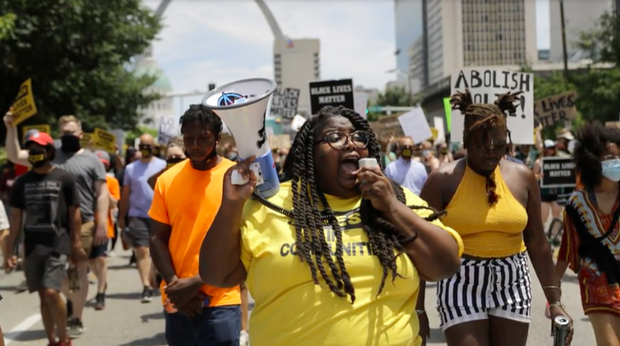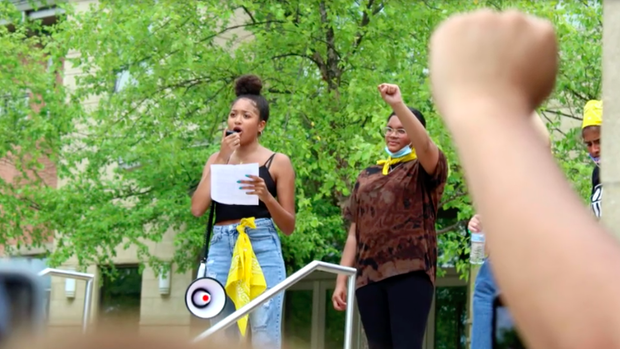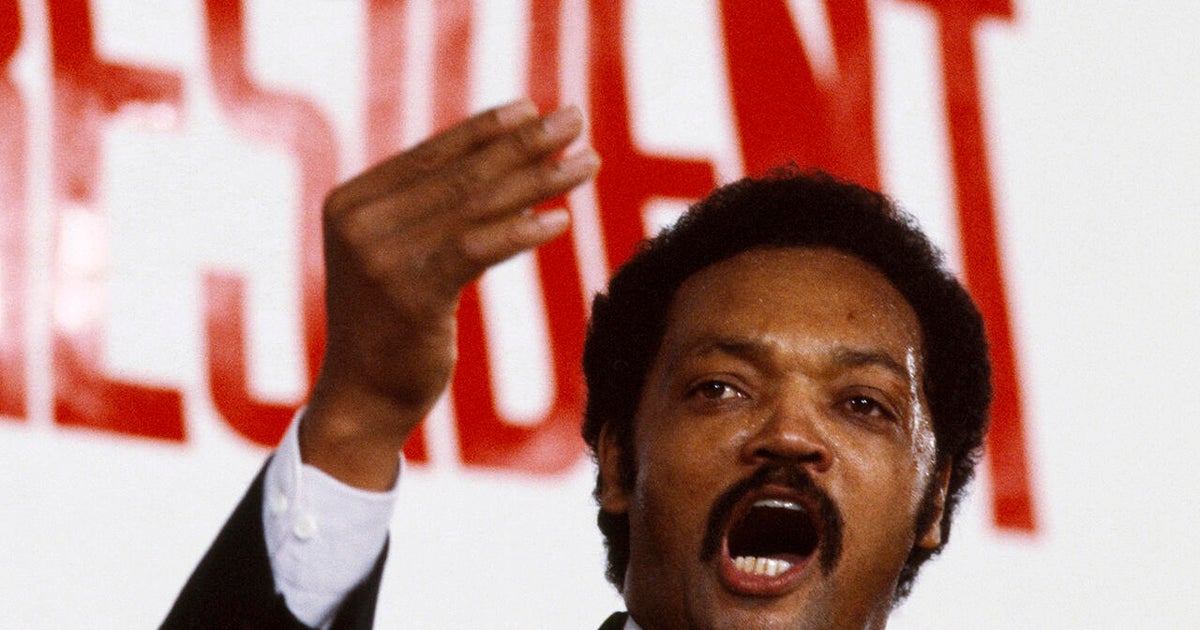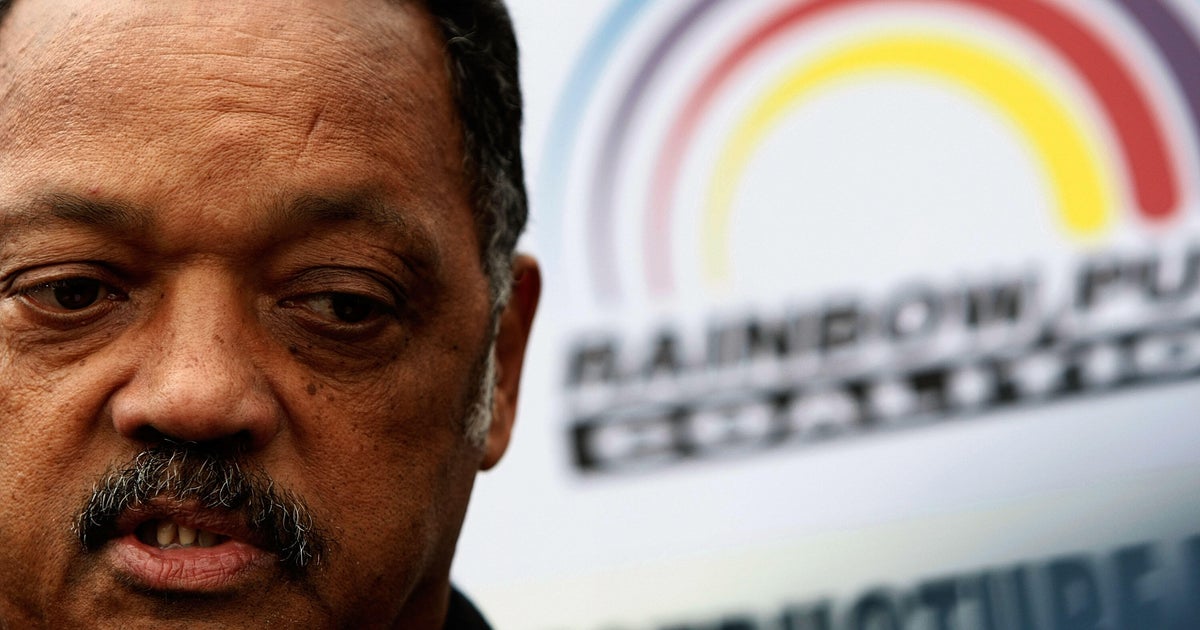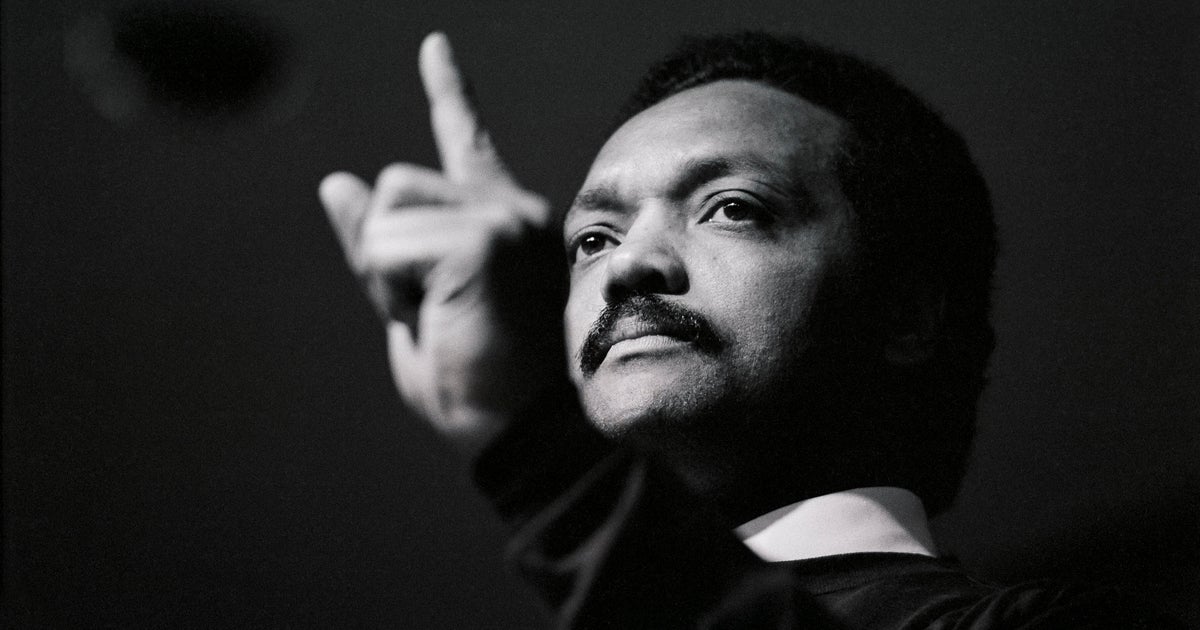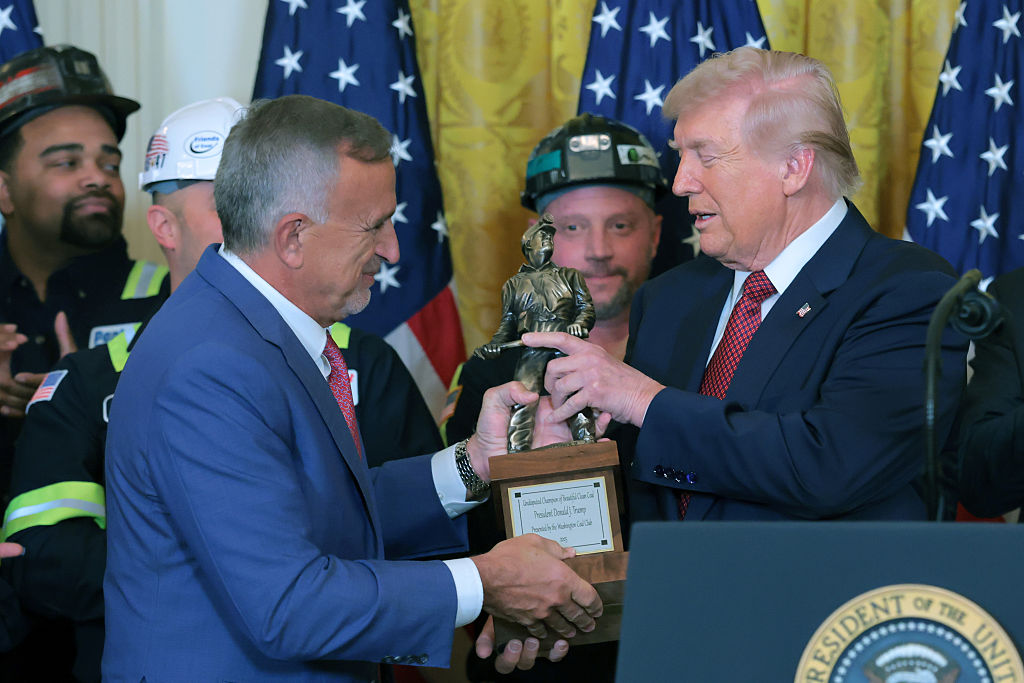Young women demanding justice: The new faces of the modern fight for civil rights
When Americans think of the Civil Rights Movement, they think of icons like Martin Luther King Jr. and John Lewis — men with such a gift for oration that the words of their speeches are forever ingrained in American history. Today, however, there is no central leader unifying the marches and rallies for racial justice across America.
There is no shortage of passionate young activists, nor is there a shortage of inspiration for change. The makeup of the movement simply looks different. And while it is often criticized for being decentralized, some of the young activists at its core tell CBS News that that's actually by design.
"I think that this movement doesn't need a central leader," 23-year-old Chelsea Miller, who co-founded Freedom March NYC in the wake of George Floyd's killing, told CBS News. "Because when you cut off one head, there are still dozens, hundreds, thousands of heads operating. … There isn't one leader and I think there's a beauty to that."
In 1955, the brutal murder of 14-year-old Emmett Till in Mississippi and the acquittal of his killers by an all-White jury served as the spark that motivated a generation of young activists, like John Lewis and Rosa Parks, to change the course of history.
The young activists of today have many sparks. Many Emmett Tills.
"Every single uprising that took place in the 1960s, they involved the unjust killing by the police of an unarmed black man as the spark," said Marc Morial, president of the National Urban League, in the CBS News special, "The Power of August."
"Trayvon [Martin] and Michael Brown, Tamir Rice, Eric Garner, were and are this generation's Emmett Tills. And I say, 'Tills' because I use it in plural."
For 29-year-old St. Louis native Kayla Reed, the spark was Michael Brown.
In August 2014, when Brown's killing set the city of Ferguson, Missouri ablaze, she was a pharmacy technician. Now, she's one of the top activists in the national movement for police accountability.
"People were dealing with over-policing. They were dealing with a bunch of fines and fees. They were dealing with the impacts of cash bail. It highlighted all the things that needed to change," she told CBS News. "I went from following the person with the bullhorn to being the person with the bullhorn."
Reed is far from alone. After Ferugson, organizers who had been working in the racial justice space for decades noticed that the makeup of the movement began to change.
"The protest community was suddenly much younger and there were new people on the streets," said John Chasnoff. "This younger generation, they wanted to shake things up in a way that would actually disrupt the current status quo systems."
Suddenly, not only were there younger faces at the protests, there were women at their helm.
Black Lives Matter was founded by two women. Women like Miller and Reed were called to action by the deaths of Black men at the hands of police. And soon, the teenage girls of Generation Z began joining the movement, as well.
For 17-year-old Mariah Norman, the spark was learning in her AP Government class that voter suppression still affected Black and Brown communities throughout the United States.
"We had to choose a social issue," she told CBS News national correspondent Michelle Miller. "And the one that I chose was voter suppression, just because I was like, 'I didn't know that that was still a thing.'"
The Mason, Ohio high school student is not even old enough to vote, yet she's already joining the cause — adding her name to a long list of women who are tackling America's racial justice issues head on.
"Voting is really important to me, because I feel like young people in general, it seems like the laws and the policies that dictate our everyday lives are just things that we have to follow," she said. "I don't think that it has to be that way. And I think that the youth vote is so incredibly important, and getting young people excited about what goes on in their government and, you know, being a part of that democracy."
Women have been pivotal to the civil rights movement since the 1960s, but they've never owned the microphone or held the reins quite like they do today.
"This is a moment when the voice, particularly of Black women, is not only being heard, it is really commanding the stage," said Sherrilyn Ifill, president of the NAACP Legal Defense Fund. "It's our time."
